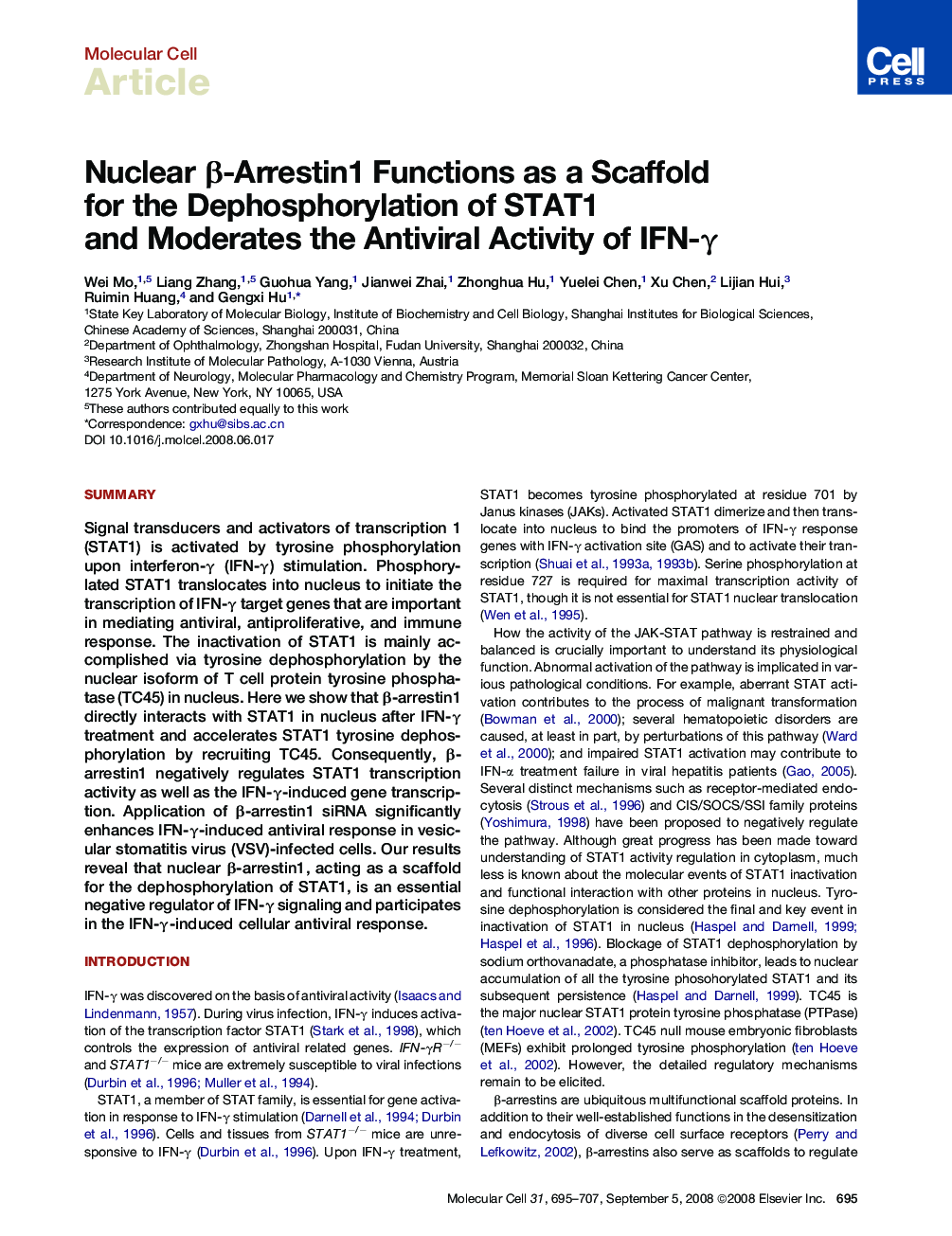| Article ID | Journal | Published Year | Pages | File Type |
|---|---|---|---|---|
| 1997220 | Molecular Cell | 2008 | 13 Pages |
SummarySignal transducers and activators of transcription 1 (STAT1) is activated by tyrosine phosphorylation upon interferon-γ (IFN-γ) stimulation. Phosphorylated STAT1 translocates into nucleus to initiate the transcription of IFN-γ target genes that are important in mediating antiviral, antiproliferative, and immune response. The inactivation of STAT1 is mainly accomplished via tyrosine dephosphorylation by the nuclear isoform of T cell protein tyrosine phosphatase (TC45) in nucleus. Here we show that β-arrestin1 directly interacts with STAT1 in nucleus after IFN-γ treatment and accelerates STAT1 tyrosine dephosphorylation by recruiting TC45. Consequently, β-arrestin1 negatively regulates STAT1 transcription activity as well as the IFN-γ-induced gene transcription. Application of β-arrestin1 siRNA significantly enhances IFN-γ-induced antiviral response in vesicular stomatitis virus (VSV)-infected cells. Our results reveal that nuclear β-arrestin1, acting as a scaffold for the dephosphorylation of STAT1, is an essential negative regulator of IFN-γ signaling and participates in the IFN-γ-induced cellular antiviral response.
